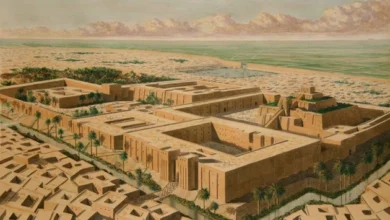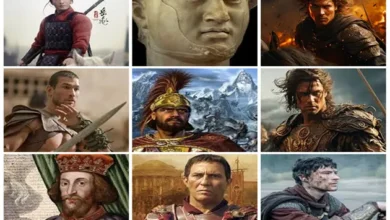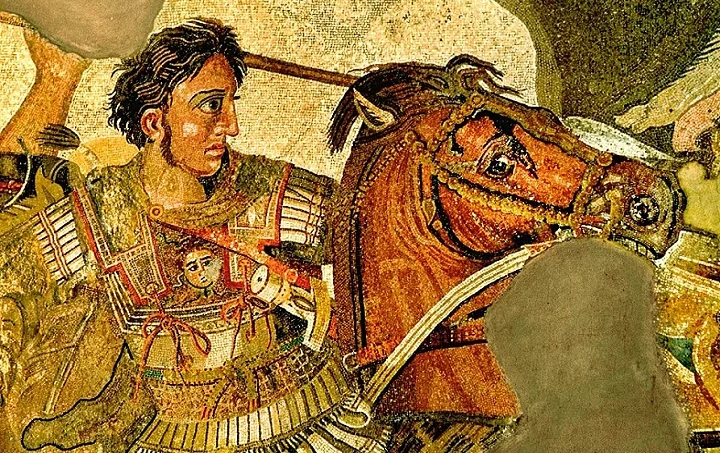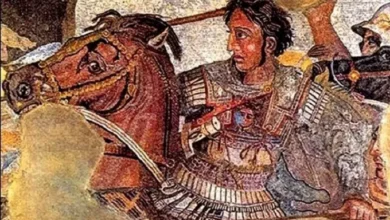These great leaders who changed the world
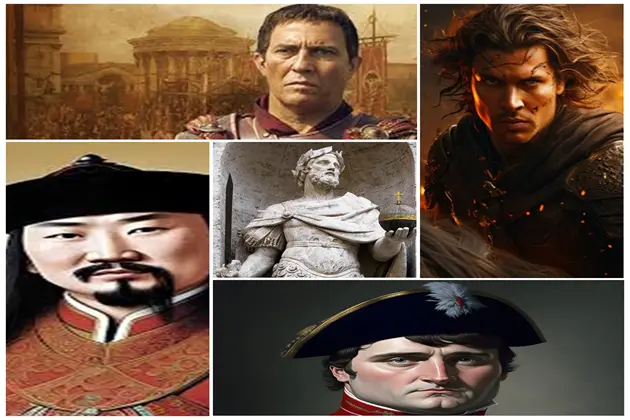
Millions of leaders at all levels, from heads of city-states to emperors of nations that ruled over nearly the whole civilized globe, have held various positions of power throughout human history.
The majority of them were forgettable individuals who were only known for their brief reigns. Only a tiny percentage of leaders distinguished themselves from the gray mass of their deeds, and a select handful of them were inextricably featured in international history textbooks.
It is not their complacency that we mean when we talk of the greatness of such rulers, but rather the breadth of their acts and the influence they made on the globe. Even while many of them caused pain to both their own country and other countries, this does not lessen the reality of their enormous
6 great leaders who changed the world
1. Gaius Julius Caesar
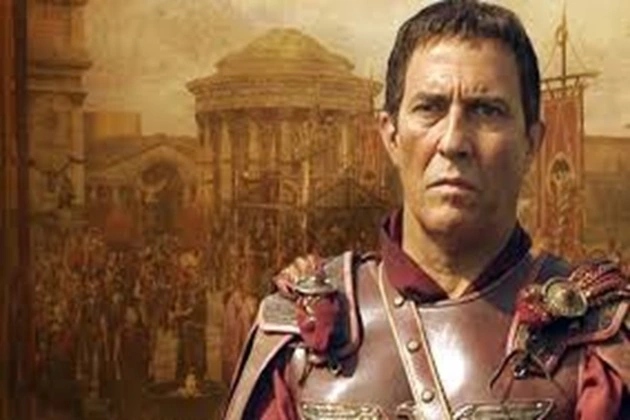
Gaius Julius Caesar, who lived in the 1st century BC, is perhaps the most famous ruler of Rome. Unlike most statesmen, Caesar did not inherit his power simply by being born into the right family but took it by force.
He first proved his valor on the battlefields by conquering the Gauls and annexing the then-Roman Republic territory from the Atlantic Ocean to the Rhine.
Having won, without any exaggeration, the love of the army and the common people, Caesar moved on to Rome for the reason that the senators, seeing the consequences of his great influence on the plebs, decided to try him for official offenses.
Thus began a civil war from which Gaius Julius Caesar emerged victorious, defeating the forces of Pompey the Great. Caesar was thereafter dubbed dictator, but against popular belief, he never attained the title of emperor.
Augustus Octavian, his adopted son, built the empire, although he continued to administer the Roman Republic with enlarged powers. Caesar implemented several reforms that made life better for common people and showed mercy to the plebs. Because of this, the monarch began to actually benefit from the people, and the day of his assassination by Senate conspirators became a day of grief for the common people.
Because of his enormous impact on international history, several European nations referred to Caesars as rulers decades after their reign. The names of German and Russian sovereigns, the Kaiser and Tsar, are derived from the word “Caesar.”
2. Alexander the Great

Alexander the Great ascended to the throne at the age of only 20 when many guys could not even decide which faculty to enter or approach the girl they liked. Alexander, however, was not left in doubt and almost immediately began to act, suppressing the Thracians’ revolt and subjugating Greece.
After this triumph, Alexander moved on to Persia, the strongest state of the time, and defeated her army. But Alexander the Great did not stop there either. He went further into Syria, Palestine, and Egypt, where he proclaimed himself the son of Amon-Ra, and so deified his person.
Alexander conquered Persia, then conquered Central Asia, and almost reached India before withdrawing due to an army revolt. In 324, Alexander the Great died at the age of 32, most likely from malaria or pneumonia. In addition to building one of the biggest empires in history, Alexander left behind many newly built cities and encouraged Greek culture throughout the lands he conquered, which led to its blossoming.
3. Genghis Khan
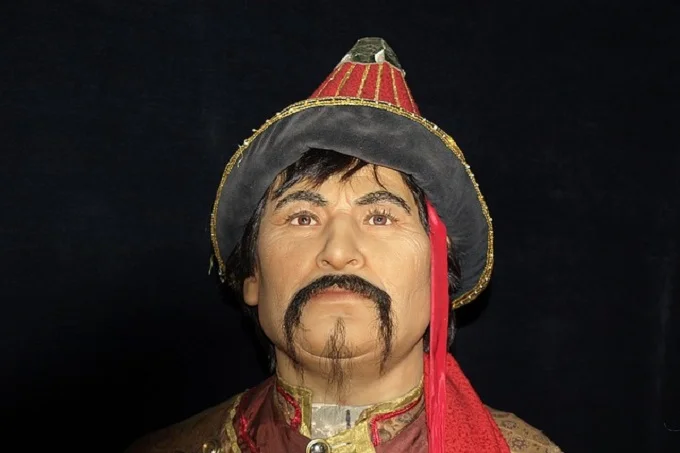
We have written about Genghis Khan so much that we should already be honored with an award for public education from the Mongolian Embassy in Russia. Temujin, the future Genghis Khan, had a very difficult upbringing and early years, which set his tale apart from that of most other emperors.
Years of extreme poverty and starvation were endured by him, along with persecution from a distant relative who simply desired his death, kidnapping, and torture. In addition to enduring the challenges of fate, Temujin also emerged victorious from the bleak deterioration.
Later, he brought together a number of nomadic tribes from North and East Asia, announcing the establishment of the Mongol Empire. Subsequently, he acquired control over China, the Khorezmshah realm, the Tangut kingdom, the Baghdad Caliphate, the Volga Bulgaria, and the majority of the Russian kingdoms.
By expanding the Mongol Empire and attempting to conquer all of Europe, his sons followed in their father’s footsteps until they reached Poland, where they withdrew.
4. Charlemagne
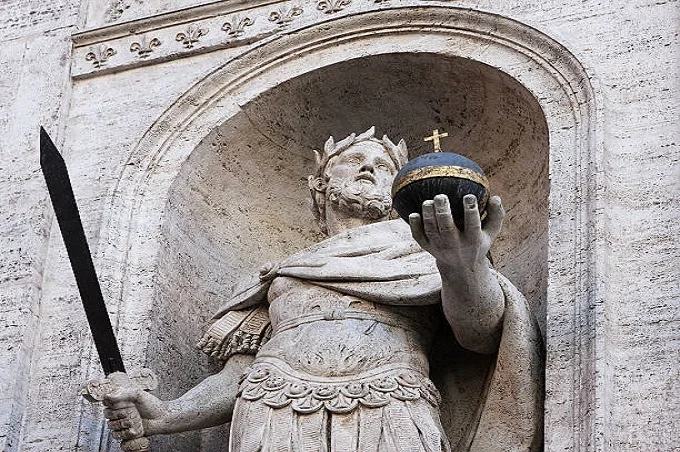
Europe was in ruins with the collapse of the Western Roman Empire. Numerous independent principalities that were engaged in ongoing conflict with one another existed on the territory of the formerly vast state.
However, this resulted in the downfall of Charlemagne, the Frankish king and the creator of the Carolingian Empire. Furthermore, Charles was bestowed with the title of Great, an honor bestowed upon very few monarchs, much like Alexander the Great.
Why was this loud prefix given to him? Following his father’s death and ascending to the throne as King of the Franks, he launched an offensive to subjugate neighboring realms and convert heathens to Christianity.
Throughout his rule, he successfully fought the Saxons, Bavaria, Aquitaine, and other powers, captured northern Spain, put an end to Muslim invasion, and brought Europe together under one flag for the first time in a very long time. Afterward, he was dubbed the “father of Europe.”
Along with his military campaigns, Charlemagne was renowned for advancing Christianity, improving the welfare of the populace, and strengthening the state apparatus. His name is the Russian term for Western sovereigns and kings.
5. Napoleon Bonaparte
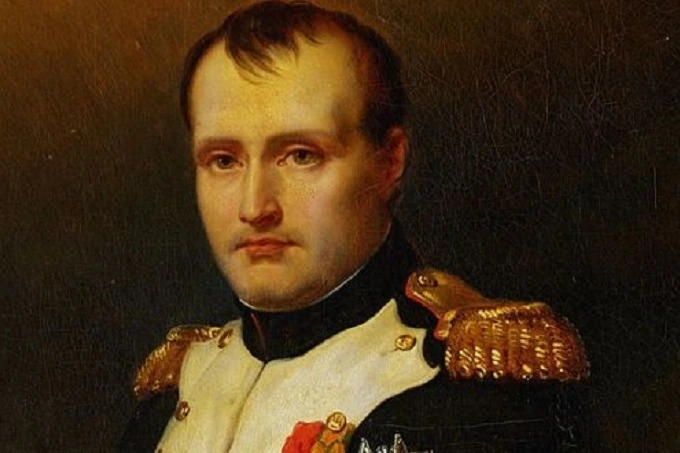
Napoleon was indeed not French, but rather Corsican, despite popular belief. Napoleon’s birth year was 1769, and Corsica joined France in 1768.
A year earlier in birth would have made him a citizen of the Republic of Genoa, and he would never have gone on to become one of history’s most remarkable rulers.
With his prowess during the French Revolution, he advanced from junior lieutenant to brigadier general, having started his professional military career in 1785. He led the Italian and Egyptian armies in successful operations beginning in 1796, when he was named commander of the army.
Napoleon carried out a coup d’état in 1799 and eventually became the dictator before becoming the emperor in 1804. Following that, he led a string of victorious battles that contributed to France becoming the leading nation in Europe.
Due to its weaker navy, Great Britain was the only country that could rival France, and Napoleon was helpless against them. However, Napoleon Bonaparte overlooked the possibility that his tough strategy would force administrations with historically acrimonious connections to form a partnership. He attacked the Russian Empire, forming an anti-French alliance of European countries, but he was defeated and banished to the island of Elba.
6. Peter I
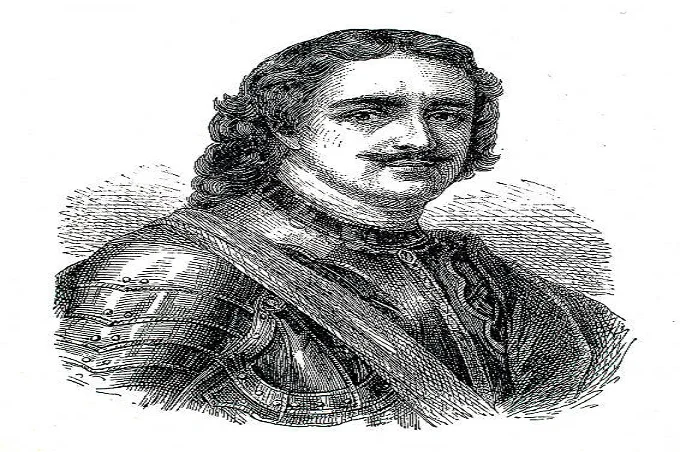
Similar lists of great leaders frequently omit Russian sovereigns because of the belief that they had little global effect. However, this is untrue.
During his reign, Peter I tilted the European power structure, establishing a new power that could compete with other European states. Unlike many previous monarchs, Peter the Great did not have an easy time with his fate.
They attempted to kidnap him as a child, and he ended up being used as a pawn by both his own family members and conspirators. But he overcame the challenges because of his perseverance. He developed an interest in Western culture at an early age and became king at ten.
After his return from Europe, Peter the Great started implementing significant social and political reforms. He established financial reform, modernized the armed forces, established a fleet, promoted trade and industry growth, established educational institutions, and generally supported policies that prioritized education.
Russia changed from a small kingdom to a major European power under Peter’s rule, which had an additional impact on the development of world history.
In addition, Peter the Great secured Sweden’s standing as a Great Power by defeating Sweden’s army, which was thought to be the greatest at the time, and enlarging Russia’s territory. Also, Kamchatka was conquered by Russia under Peter, giving the state unrestricted access to the Pacific Ocean and the ability to expand later to the American continent.

